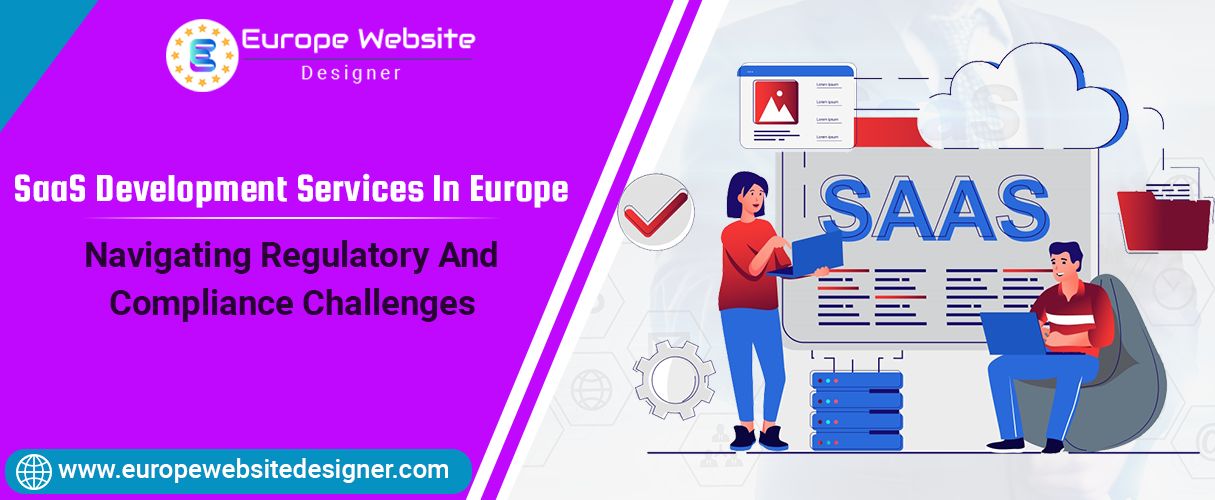
Software-as-a-Service (SaaS) has become an increasingly popular model for delivering software applications to businesses and consumers alike. With its flexibility, scalability, and cost-effectiveness, SaaS has revolutionized the software industry. However, when it comes to offering SaaS development services in Europe, navigating the regulatory and compliance landscape can be a complex task.
In this blog, we will explore the challenges faced by SaaS providers in Europe and discuss strategies to overcome them.
Data Protection and Privacy Regulations:
One of the primary challenges for SaaS providers in Europe is complying with data protection and privacy regulations, most notably the General Data Protection Regulation (GDPR). GDPR imposes strict requirements on the collection, storage, and processing of personal data. SaaS providers must ensure that they have robust data protection policies, obtain explicit user consent, and implement appropriate security measures to safeguard personal data.
To navigate these challenges, SaaS providers should conduct thorough data protection impact assessments, implement privacy-by-design principles, and establish data breach response plans. Working closely with legal experts who specialize in data protection can help ensure compliance with the intricate requirements of GDPR and other relevant regulations.
Cross-Border Data Transfers:
Another significant challenge for SaaS providers in Europe is the transfer of personal data across borders. While GDPR allows data transfers within the European Economic Area (EEA) without additional safeguards, transferring data to countries outside the EEA requires additional measures to ensure an adequate level of protection.
To tackle this challenge, SaaS providers can rely on mechanisms such as Standard Contractual Clauses (SCCs) or Binding Corporate Rules (BCRs) to ensure data transfers comply with GDPR. Engaging with legal counsel experienced in international data transfers can help navigate the complexities of cross-border data transfers and maintain compliance.
Intellectual Property Rights:
SaaS providers need to protect their intellectual property (IP) rights while ensuring compliance with European copyright laws. This includes safeguarding their software code, trademarks, patents, and other proprietary information. It is essential to have robust contracts and agreements in place with clients and employees that clearly define IP ownership and usage rights.
Working with legal experts specializing in intellectual property can help SaaS providers navigate complex IP laws, conduct regular audits of their IP portfolio, and take necessary steps to protect their valuable assets.
Service Level Agreements (SLAs) and Liability:
SaaS providers must establish clear Service Level Agreements (SLAs) that define the level of service, uptime guarantees, and response times. These SLAs should be aligned with customer expectations and comply with applicable laws and regulations.
When it comes to liability, SaaS providers need to carefully review and negotiate their contractual terms. Limiting liability to the extent permitted by law and having appropriate indemnification clauses can protect SaaS providers from excessive financial risks.
Industry-Specific Regulations:
Certain industries, such as healthcare, finance, and e-commerce, have specific regulatory requirements that SaaS providers must adhere to. For example, healthcare-related SaaS solutions need to comply with the EU Medical Device Regulation (MDR) or the Health Insurance Portability and Accountability Act (HIPAA) in the United States.
SaaS providers targeting specific industries should conduct thorough research to understand the regulatory landscape and engage with industry experts and legal professionals who specialize in the relevant sector. This will help ensure compliance with industry-specific regulations and build trust among potential clients.
Conclusion:
As the demand for SaaS solutions continues to grow in Europe, SaaS providers must navigate the regulatory and compliance challenges to establish themselves as trusted partners. By understanding and complying with data protection and privacy regulations, managing cross-border data transfers, protecting intellectual property rights, establishing robust SLAs and liability frameworks, and adhering to industry-specific regulations, SaaS providers can overcome these challenges and thrive in the European market.
It is crucial for SaaS providers to collaborate with legal professionals who specialize in technology law and have in-depth knowledge of European regulations. By proactively addressing regulatory and compliance challenges, SaaS providers can build a competitive advantage, gain customer trust, and position themselves as leaders in the European SaaS landscape.
Tags: SaaS Development Services, Web Development Services, Europe Web Development Services, Web Development Companies In Europe, Europe Website Designer, web development services company, web design & development services, e-commerce web design development services, looking for web development services, full stack web development
